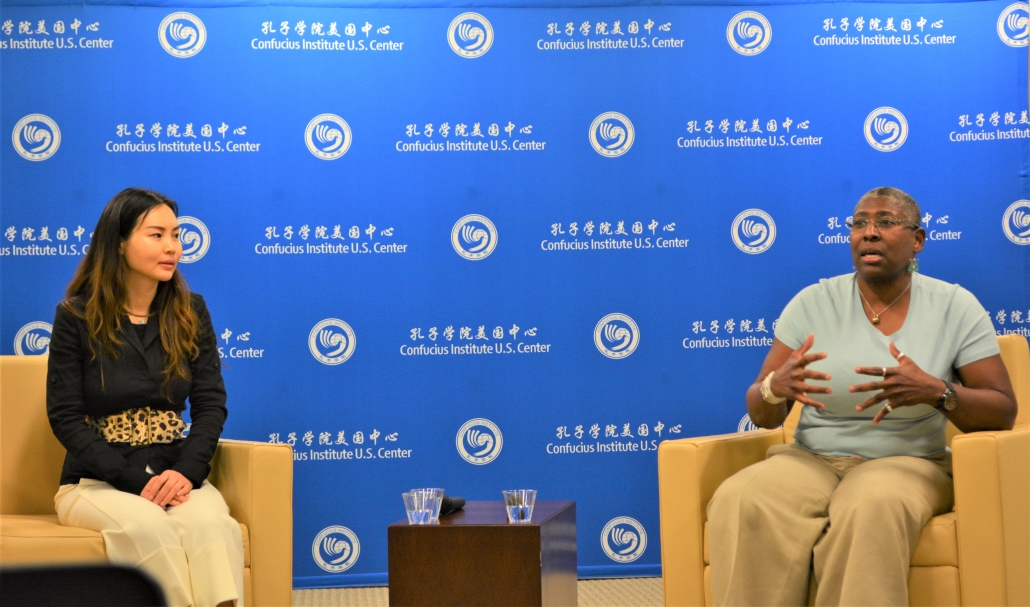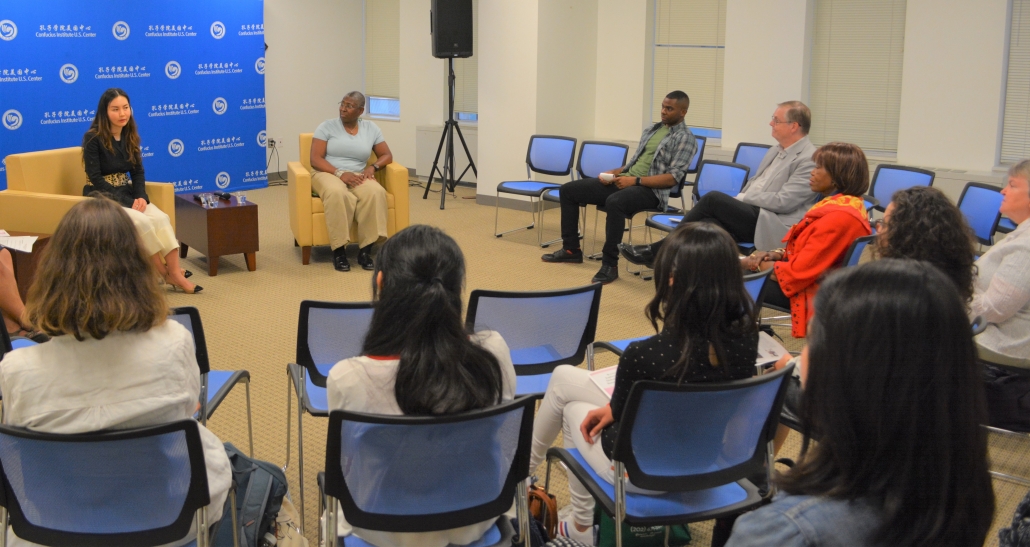Exploring the Globalization of Beauty Standards
Panel Discussion & Q&A
September 18, 2019
The effects of globalization are everywhere from economics and politics to our social and cultural norms. Rapid knowledge sharing bombards us on a day to day basis and what once took months to occur now happens almost instantly. Here at the CIUS Center we found ourselves wondering about the effects of globalization on areas less often discussed – specifically, the globalization of beauty standards.
This past September, we welcomed Dr. Jaehee Jung, an expert in psychology of clothing and human behavior from University of Delaware and Dr. Veronica Franklin, Clinical Director of The Body Therapy Center in Washington, DC to share their thoughts on the impact and evolution of Western beauty standards globally.
Discussion Summary
According to Dr. Jung how we view our bodies and understand the concept of beauty is determined by socialization. Social media, advertisements and other traditional media outlets all serve a role in shaping this socialization through vulnerabilities to subliminal messaging. This is an experience that connects us all – no matter our nationality.
To illustrate this connectedness, Dr. Jung discussed that despite widely held stereotypes, increased research over the last 15 years has shown that Asian woman do, in fact, experience body dissatisfaction even if they are typically smaller and petite. China, specifically, has been negatively impacted by Western beauty standards due to the use of Western style visual representations and advertisements. In the past decade, China has become second in total consumption of cosmetic products worldwide, trailing just behind the U.S. (Jung 2018). Further, research over the last two decades has found that women in China present more cases of body dissatisfaction and eating disorder symptoms than women in the United States (Jung & Forbes, 2007).
In the case of China, economic growth directly impacts how individuals develop their perceptions of body image and beauty standards. Dr. Jung explained that as Western ideas and products were rapidly introduced to the Chinese market, this created an influx of information about beauty standards, cosmetics, and cosmeticsurgery. Currently, these markets are booming, however, the long term effects of these market trends, including the mental health impact, are unknown. As a country that is still developing, the resources to provide support to people navigating the challenges of body image have not been well established.
Through working with clients at The Body Image Therapy Center, Dr. Franklin has witnessed first-hand how mental health and perception impacts the steps we take to remain healthy. While maintaining an outside appearance is important, we must also consider how we take care of ourselves on the inside, which includes our mental health.
Chinese and U.S. cultures are different in a number of areas but the images, products and standards that people are exposed to in both countries are very similar. Globalization is a two-way process, and although traditionally Western beauty standards continue to dominate, traditionally Asia beauty products and practices are also entering the mainstream. Products such as facial masks and beauty fads involving rice and seaweed are increasing in popularity as well. Regardless of where the products originate, they all point back to a certain image that is perceived as ideal within society.
It was difficult for Dr. Jung and Dr. Franklin to pinpoint the positive attributes of the globalization of beauty standards. Looking forward, they both reiterated the importance of education in combating current challenges. They feel it is crucial that consumers understand that photos are often edited, that social media posts do not always reflect reality, and that there is more to life than focusing on appearance. It is also important to reduce the social stigmas associated with not fitting into a certain beauty standards. Dr. Franklin closed by saying that as members of society, it is up to us to end the perpetuation of negative comments.
Dr. Jung and Dr. Franklin sparked a fascinating discussion that made it clear that there is still significant work to be done in addressing the negative effects of traditionally western beauty standards in societies across the globe. Attendees were encouraged to continue the conversation in their own communities and the CIUS Center was excited to be a part of fostering such an important discussion.
Dr. Veronica Franklin
Clinical Director, The Body Image Therapy Center
Dr. Franklin brings over 20 years’ experience in the mental health field as an educator, advocate, therapist, and clinical leader. Her behavioral health career has come full circle from health and wellness through 20 years as a mental health provider. Her initial experiences were as a Kinesiology professor at University of Minnesota and at Texas A & M University. While teaching in academia, she developed a passion for overall wellness and the search to improve behavioral health on college campuses. Over the next 20 years, Dr. Franklin incorporated body-mind wellness into her academic counseling courses, in her spiritual workshops and by utilizing nutritional education in her practice.
Professor Jaehee Jung
Professor of Fashion and Apparel Studies, University of Delaware
Professor Jung’s expertise is in examining the psychology of clothing and consumer behavior across cultures. Her research focuses on apparel branding and consumer culture, especially cultural influences on worldwide luxury brand and marketing strategies. Jung’s latest projects include consumer perceptions of luxury brands across multiple countries, and consumer attitudes towards co-branding between luxury brands and mass-market brands across cultures. Much of her work is international focused, and she is knowledgeable about worldwide international business practices and consumer behavior.




